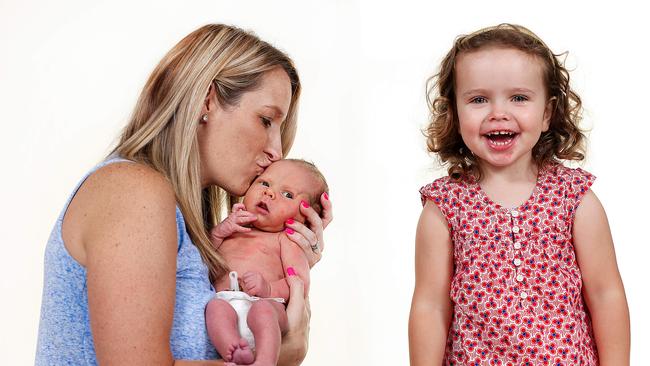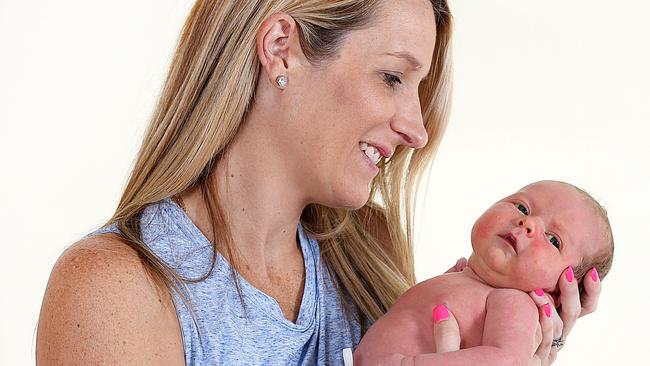Scientists confirm pregnant women are not going crazy — baby brain is a thing
PREGNANT women have long complained of forgetfulness and poor concentration, which until now many dismissed as an old wives’ tale. But scientists say it is real.

VIC News
Don't miss out on the headlines from VIC News. Followed categories will be added to My News.
IT’S official. Scientists say the dreaded “baby brain” is real.
Pregnant women have long complained of forgetfulness and poor concentration, but until now many dismissed the phenomenon as an old wives’ tale.
PUSH FOR MANDATORY WARNING LABELS ON ALCOHOL FOR BREASTFEEDING AND PREGNANT WOMEN
PREGNANCY WEIGHT GAIN: HOW MUCH WEIGHT IS HEALTHY?
Deakin University has uncovered evidence of changes to women’s brains during pregnancy, with the biggest differences detected in the third trimester.
Up to 80 per cent of pregnant women report a decline in memory, difficulty reading, confusion, poor concentration, increased absent-mindedness and reduced motor co-ordination.
The meta-analysis of 20 studies, including more than 1000 women, was the largest study of its kind.

Lead author Associate Professor Linda Byrne said the research showed general cognitive functioning, memory and executive functioning were much lower than in non-pregnant women. She reassured expectant mothers that baby brain should not be a cause for concern.
“Pregnant women are already stressed and have enough to worry about with all the advice on food and exercise and all kinds of things, and we certainly don’t want to add to that,” she said.
“Despite the differences, pregnant women were still performing within the normal range.
“Except for the women, themselves, and those who were really close to them, others may not even notice the changes.”
There is some evidence suggesting the phenomenon is a form of “biological priming” that prepares the woman to devote all of her attention to the child when it is born.
It may also be as a result of the physical transformations a woman is undergoing, fatigue, and the contemplation of a major life change.

Kate Hutchison, 33, gave birth to her second baby, Isabelle, last week at Sunshine Hospital.
“During my second pregnancy, I definitely experienced baby brain. I noticed at work, I was not as switched on as I would usually be, and there were a few repeat emails sent,” she said.
Like many mothers, Ms Hutchison is keen to know if the symptoms resolve or persist, and if so, how long after the baby is born.
Prof Byrne said more research was needed to understand the effect of baby brain on everyday life, which they hoped to answer in a current Deakin University study involving Victorian women.
That study is using neuroscience techniques to track changes in cognition before, during and after pregnancy.
To take part in the research, visit babybrainresearch.com


